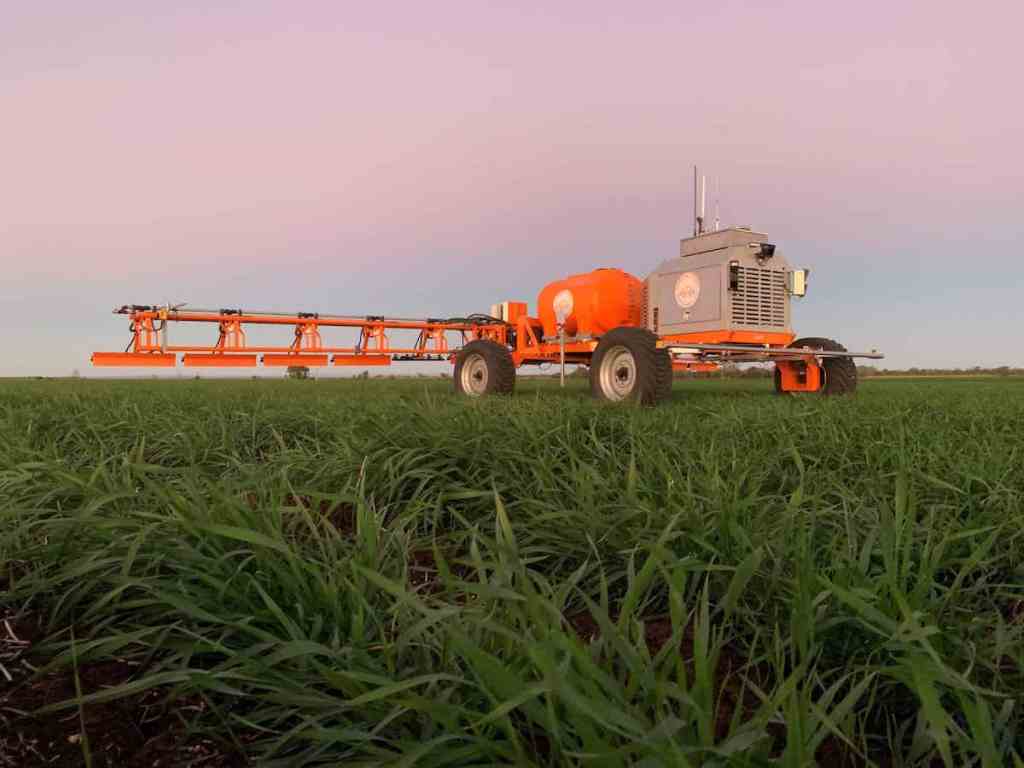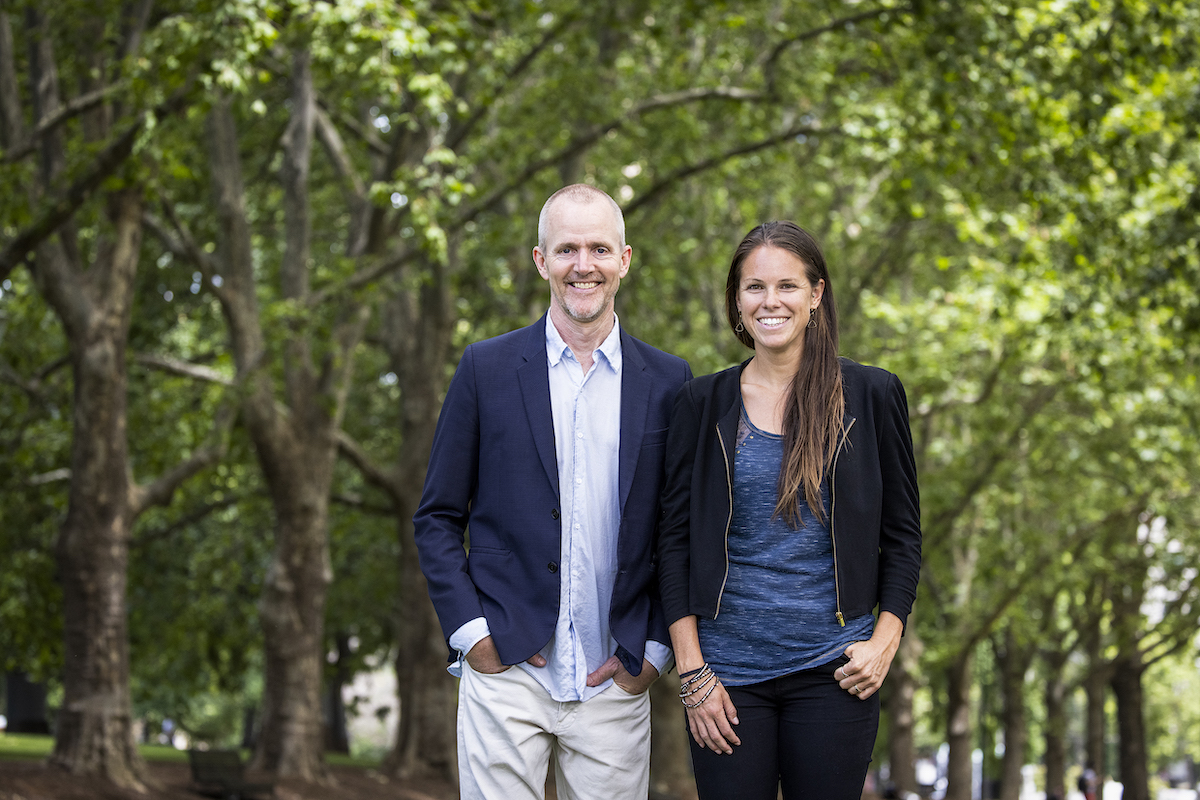Ag-tech is a broad term, and it’s easy to simply assume it’s about making Australia’s legacy agriculture system more efficient.
While the old ‘food-n-fibre’ approach has served the country well, the pressures of climate change, trade exposure and new sustainability disclosure rules are forcing a major shift.
Tenacious Ventures is at the vanguard of this shift, working to shift our food and agriculture production systems to being carbon neutral and more resistant to climate change.
The VC firm recognises that the food system is undergoing a major transformation, and their mission is to back the early-stage founders that mainstream investors struggle to understand and value.
They’re an impact native, digital native, investment firm, focussed on the agrifood system.
Co-founder Sarah Nolet has a rich pedigree in the space: she founded her own accelerator in the space some years ago, Farmers2Founders, while her co-founder Matthew Pryor also founded an accelerator, Rocket Seeder, and was CEO of Observant, a startup that was acquired.
They’re founders themselves, and they harness that rare skill, that all successful VCs must have, of being able to recognise potential in a startup team that other investors can’t see.
The success of their first-time fund has enabled the start of raising for Fund 2, which is targeting $70 million, and could push to $100 million.
OnImpact spoke with Sarah about the lessons learned from the first fund-raise, the innovation that sprung from Australia’s lack of subsidies for farmers, as well as the global macro-trends fuelling their ambitions for Fund 2.
First-Time Fund Pushed to $35M
The team’s first fund was raised with a clear vision, but they didn’t have a track-record as investors.
“It was quite scary to say we’re going to raise $20 million. We didn’t know precisely who would be writing those checks, and while we had ideas, it was pretty new to us.” Sarah says.
What they lacked in investor experience, they made up for in startup smarts, having been founders themselves. But also, they were confident their analysis of macro trends would be borne out.
Their confidence paid off, and they landed cornerstone investments from the CEFC and Grok Ventures, the family office of Mike and Annie Cannon-Brooks.
Sarah put in the hard-work, she worked the shoe-leather, and they not only raised the $20 million, but pushed it out to $30 then $35 million, such was the demand for their vision of Australia’s food future.

Beyond Food-n-Fibre
Australia was built on the sheep’s back, the old saying goes. But its future will be automated (or grown in a lab).
The Australian government recognises the transition, and it has defined a 2030 target for the agriculture sector to grow to $100 billion. While this target will help drive efficiency gains in the production of traditional products, and processes, there’s a parallel opportunity, and that’s where Tenacious is aiming.
The team is identifying the technologies and business models that will enable that growth. They want to commercialise the research that has already been done, and reboot the local mindset about how to drive innovation.
“It’s the circular economy and waste management. It’s on-farm autonomy and unlocking whole new practices for growers. It’s enabling the shift to biological pest management, to align farming with consumer expectations, while at the same time reducing costs and increasing climate resilience. It’s measuring and monitoring natural capital, as well as monitoring progress towards sustainable protein, whether that’s from animals or new forms and plants or cells.” Sarah says.
While climate change has been painfully politicised, when it comes to the need for adaptation and innovation, one might assume traditional farmers would be defensive. Instead, they’re pragmatists, and they see the need for change.
“In a global-sense, farmers are on the frontline of climate change and they’re not naive about what is happening to the land. That’s especially true in Australia, where we’ve never had the quality of soils or the depth of soils that other regions enjoy. We’ve had significant climate volatility. Plus, we’ve had to be export oriented, because we don’t have the domestic market size here.” Sarah says.
Aussie farmers operate in a tough environment, and it’s getting tougher, but what many people don’t appreciate is that economic conditions here are drastically different to those facing foreign farmers, and that’s because there’s no subsidies.
Less Subsidies = More Innovation
The US has the Farm Bill, which sees billions of dollars supporting existing farmers, to assure food supplies, but in the process, it maintains the status-quo, and stifles innovation.
In Australia, subsidies are far less prevalent.
(In fact we’re the second least subsidised agricultural economy in the world after New Zealand.)
“In Australia we’ve seen hundreds of millions of dollars a year invested through our research and development corporation system; like the Meat and Livestock Association, The Grains Research and Development Corporation, The cotton Research and Development Corporation, etc. The research has gone towards, what we would call, climate adaptive agriculture. It’s vital just so we can be a productive, global player in global ag. Those organisations get funding from farm gate levies plus matched federal funds, and they invest largely in research for the sector. And so we’ve come up with amazing innovations, like genetics for the cotton industry, for example.” Sarah says.
“On the whole, that’s really the opportunity we see, to ask, how can we commercialise those innovations!”
The research being done in these organisations is powerful, and globally relevant. But what hasn’t been recognised, is the opportunity to commercialize the research itself, rather than simply increasing yields on the underlying commodities.
Tenacious Ventures are supporting the startups blooming from the fertile soils of cutting-edge research. It’s the silicon valley model, only dirtier (and tastier).
Fund 2
The trends that drove Fund 1 have only strengthened, and Sarah and her team are now raising a second fund to double-down on their thesis.
“The kind of macro trends are as strong as they ever have been, in terms of digitization, new technologies, on climate pressures, on regulatory pressures; as well as deal flow, we’ve been able to attract the quality of companies we have because they say they want to work with us, the same goes for investors. And ultimately, the planet needs it.” Sarah says.
“We think there’s a real opportunity to be delivering impact and returns. So that’s given us confidence to move to Fund 2. The target size is $70 million, it could go up to $100 million. But $70 million is the target.”
Sarah and Matthew are thesis led; they do their own research to explore global problems, and the technology that could help solve it. With this thesis in hand, they go about finding startups that are building in that direction.
This is a fledgling field, the research is cutting-edge, and finding people who understand the intersection between technology and farming is rare.
The feedback from founders is that they’re the only ones who not only get what they’re doing, but who’ve already thought about the problems, so they can help them to advance that thinking, rather than just getting up to speed.
“The gap we fill is that we’re high conviction investors. We’re happy to lead, we’re happy to price, we’re happy to go in early.” Sarah says.

